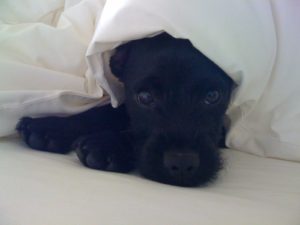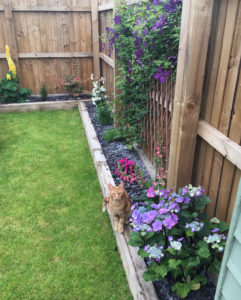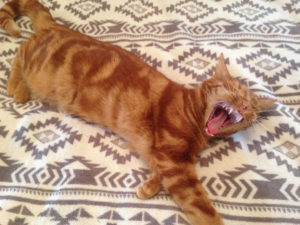With many of us having direct or indirect experience of cancer it can be very easy to apply what we know to our pets. Chemotherapy in our pets is actually very different. As we are making this choice on their behalf we use much lower and well tolerated doses. The aim of veterinary chemotherapy is always ‘palliative’ with the priority being quality of life and hopefully extend survival time.
For some cancers this may mean months, for others a state of ‘remission’ can be entered and they may remain clinically well for years. The decision to put your pet through chemotherapy is of course very personal and dependent on the individual patient; a decision we will help you make and support you in.
We carry out the chemotherapy protocols ourselves at Hollybank. These protocols vary significantly but involve both oral and intravenous drugs. If required, we can also seek specialist support and advice from Ian Grant who runs a chemotherapy consultancy.
Over the years we have had some wonderful patients do very well with chemotherapy. One of our most recent patients is Tilly, a lovely little Patterdale Terrier. Tilly is so well behaved when she is in with us and has had a remarkable response to her chemotherapy. She definitively deserves our ‘brave pet’ recognition.Her owners have kindly written about their experience of chemotherapy below.

Tilly is a brave, loyal loving little dog. She is only small, but the impact she has made in our lives is huge. It was therefore devastating to find a lump in her back leg after noticing she was becoming withdrawn and seemed to be in pain. As owners it is crucial to get to an accurate diagnosis quickly and manage any pain experienced. Richard our vet fast tracked the tests and explained everything in a great deal of detail as we waited for the results. Also he managed her discomfort with a combination of drugs which controlled the pain to such an extent that we had a carefree dog again.
In Tilly’s case the result was bad news (a very aggressive soft tissue sarcoma with a terminal outcome), but tempered with the advice that there were still things we could do to extend her life whilst maintaining its quality. CT scanning had determined that the cancer had already spread from the lump in the leg to 4 points in the lungs and a lymph node.
We were concerned that chemo might ruin the quality of time Tilly had left, but Richard advised us to try chemotherapy with a drug that was known to have very few and mild side-effects. Our previous experience with Richard had built a trust which encouraged us to take this advice. So we embarked on 6 treatments, each separated by a period of 3 weeks.
We had some small problems: Although Tilly did not actually vomit, she did go off her food because of nausea which made taking tablets difficult. Richard addressed this with an anti-nausea drug which we now take proactively for the first 4 days of chemotherapy. Tilly did experience some diarrhoea which was expected and we had drugs to deal with if it happened, but we now take these proactively on day 2 after chemotherapy and this prevents it happening at all. On the whole Tilly has about 4 quiet days following a chemo, but the rest of the time is a happy and active little dog.
We have had a further CT scan after the 3rd chemotherapy, because Tilly had a slipped disc. This identified that all but one of the points in the lung and the original tumour had disappeared from the scans.
We would like to thank Tilly’s owners for sharing her ‘brave pet’ story with us. As you can appreciate, for relatively little intervention chemotherapy has resulted in a significant reduction in the tumours whilst still being able to maintain her quality of life. This is always the aim and we are so pleased we have been able to achieve this for Tilly.



